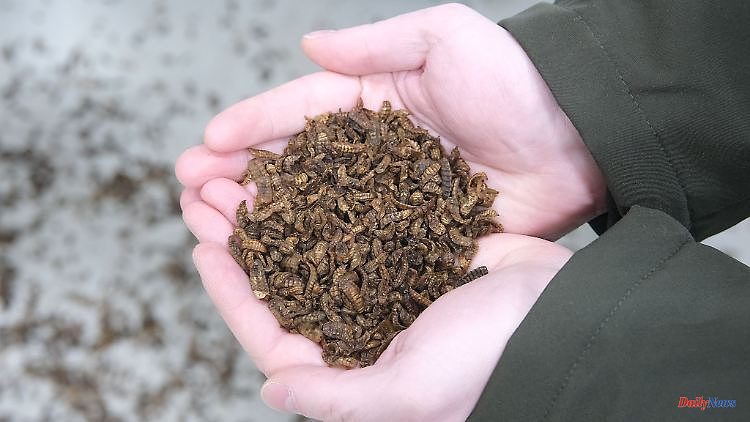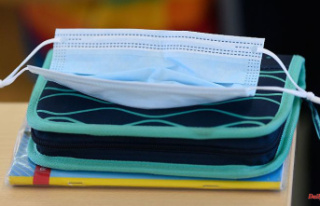So far, a piece of pork, a fish or a chicken leg has ended up on the plates of many Germans. An insect breeder from Leipzig expects that crawling animals will soon be part of it.
Pegau (dpa / sn) - In some Asian countries they are regularly part of the menu, and in this country too people cannot avoid insects as food. At least that's what Kai Hempel, the managing director of the insect breeding madebymade in Pegau near Leipzig, is convinced of. "There is simply no alternative," he told the German Press Agency. His company, which he built up with two partners starting in 2018, now has twelve employees.
In terms of production volume, it is the largest breeding farm in Germany. The fact that the European Union has approved other insects - the grain mold beetle and crickets - for the production of food since the end of January does not change the business model of the Dresden-based breeder. "We continue as before - like all other breeders," said Hempel.
Even before EU approval, individual insect species could be processed into food, Hempel explained: "So we've been eating insects for quite a while, for example in pasta." The fact that the six-legged friends are above all an environmentally friendly source for covering the protein requirement has not yet entered the minds of many people. "We are currently breeding the larvae of the black soldier fly, drying them and then feeding them to chickens or fish, for example - which we then eat," explained the 35-year-old.
At the moment, madebymade customers primarily include agricultural businesses, but also producers of food for dogs and cats and zoos. The animals are usually sold dried and ground, but individual buyers - such as zoos - also buy the animals alive. The droppings of the fly maggots - also known as food - are also processed into organic fertilizer and sold.
In the production of the basis for livestock feed, the company is in competition primarily with producers abroad. "In large part, chickens, pigs and aquatic animals that are raised to eat them are fed soy and fishmeal," says Hempel. Soy and fishmeal are definitely cheaper than the more environmentally friendly alternative from Pegau, but there is a catch: "Both are finite and have to be imported. The EU cannot do that forever - and then insects will become an exciting alternative at the latest."
Sooner or later, insect breeding will become significantly more important for the food industry, Hempel predicted. First of all, however, a rethinking must take place in agriculture, politics and also among end consumers. It will be a few more years until then. The breeder criticized the current discussions about the use of insects in food as highly emotional and unrealistic.












